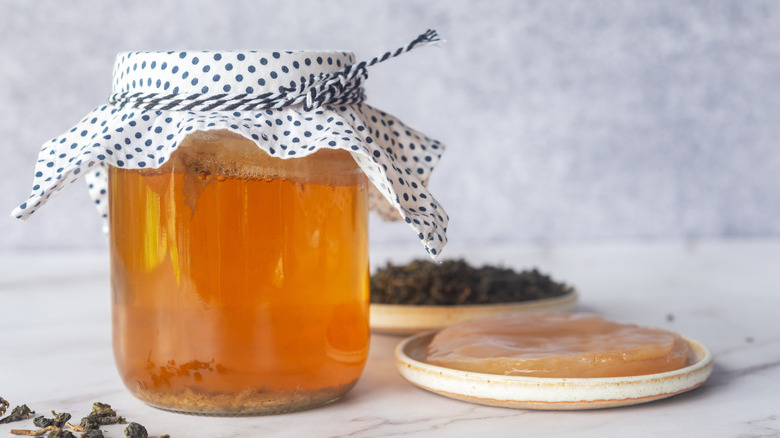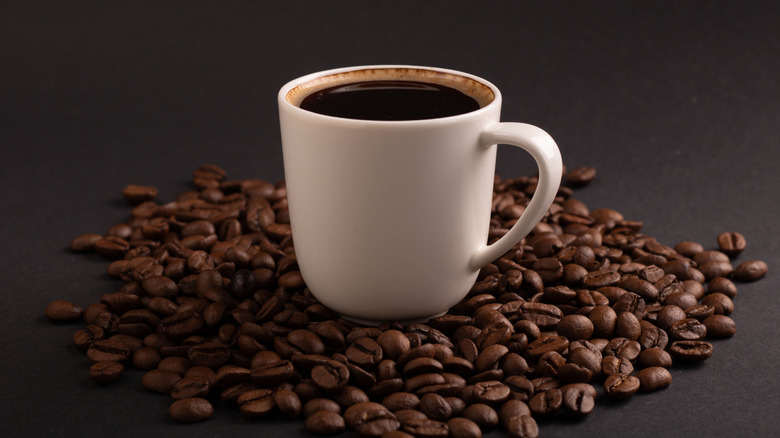Kombucha Vs Coffee: How Does Their Caffeine Content Compare?
If you're like most people, you need an early caffeine fix to get through the rest of the day. But if you often get tired of those long coffee shop lines on your way to the office, or if you're just in the mood to swap your morning latte for something different, you've probably thought of giving kombucha a chance. It might seem like a fun and refreshing way to spice things up, but you also may be wondering: Can it actually provide the same satisfying caffeine kick as coffee? The simple answer is yes, although there's a bit more to it than that.
Kombucha is safe to drink daily, even more than once. It's recently taken the United States — especially California — by storm, with more than 600 brands currently present on the market. That said, apart from being irresistibly fizzy, sweet, and pleasantly tangy, this ancient fermented tea also contains up to 2 milligrams of caffeine per ounce (approximately 16 milligrams of caffeine in an 8-ounce serving, or about a third of the caffeine you'd get from a cup of black tea). Is that really enough to get you going, though? Just for comparison, coffee contains up to 12 milligrams of caffeine per ounce, which adds up to just under 100 milligrams in an equivalent portion. So how much kombucha does a person actually need for a healthy energy boost?
Kombucha's caffeine content depends on the brand
Most people need around 100 milligrams of caffeine or more to drag themselves out of sleeping mode in the morning. But even though kombucha isn't completely caffeine-free, it has way less of the stimulant — sometimes referred to as the United States' favorite drug — so you'd probably need several servings for it to have the same effect on your nervous system as a single cup of coffee. This can still vary depending on the type of tea and how it's fermented.
While the exact caffeine content in kombucha differs from brand to brand, if you're looking for the most caffeinated option, your best bet is a batch made with black tea (check out how black tea's caffeine content compares to coffee). This type packs around 60 milligrams of the stimulant per serving. Oolong and green tea aren't that far behind either, with up to 50 milligrams of caffeine per cup. However, only about one-third to half of the original caffeine from the tea actually makes it into the final kombucha. So if you're keen to see how your system reacts to it, just grab a bottle from the supermarket shelf and don't hesitate to give it a go. And in case you're wondering about how long you can safely drink kombucha after opening it, you'll be glad to know that it can last up to a week in the fridge without losing its fizz.

